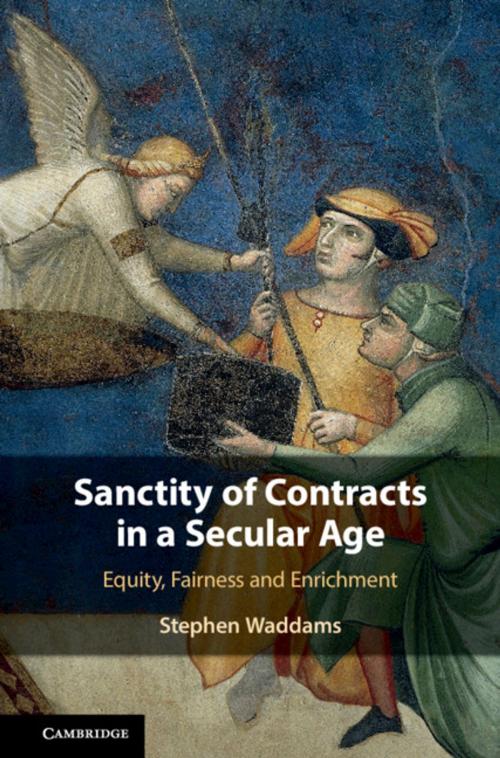Sanctity of Contracts in a Secular Age
Equity, Fairness and Enrichment
Nonfiction, Reference & Language, Law, Contracts, Legal History| Author: | Stephen Waddams | ISBN: | 9781108555418 |
| Publisher: | Cambridge University Press | Publication: | March 21, 2019 |
| Imprint: | Cambridge University Press | Language: | English |
| Author: | Stephen Waddams |
| ISBN: | 9781108555418 |
| Publisher: | Cambridge University Press |
| Publication: | March 21, 2019 |
| Imprint: | Cambridge University Press |
| Language: | English |
The phrase 'sanctity of contracts' implies that contracts should always be strictly enforced. But when this objective is relentlessly implemented ruinous burdens are sometimes imposed on one party and extravagant enrichments conferred on the other. Despite recognition of the need to control highly unreasonable contracts in various particular contexts, there remain many instances in which the courts have refused to modify unreasonable contracts, sometimes with extravagant results that are avowedly 'grotesque'. In the computer age assent may be inferred from a click on a screen in the absence of any real agreement to the terms, which are often very burdensome to the user. In this book, arguments are advanced in favour of recognition of a general judicial power to relieve against highly unreasonable contracts, not only for the benefit of the disadvantaged party, but for the avoidance of unjust enrichment, and for the avoidance of anomalous gaps in the law.
The phrase 'sanctity of contracts' implies that contracts should always be strictly enforced. But when this objective is relentlessly implemented ruinous burdens are sometimes imposed on one party and extravagant enrichments conferred on the other. Despite recognition of the need to control highly unreasonable contracts in various particular contexts, there remain many instances in which the courts have refused to modify unreasonable contracts, sometimes with extravagant results that are avowedly 'grotesque'. In the computer age assent may be inferred from a click on a screen in the absence of any real agreement to the terms, which are often very burdensome to the user. In this book, arguments are advanced in favour of recognition of a general judicial power to relieve against highly unreasonable contracts, not only for the benefit of the disadvantaged party, but for the avoidance of unjust enrichment, and for the avoidance of anomalous gaps in the law.















